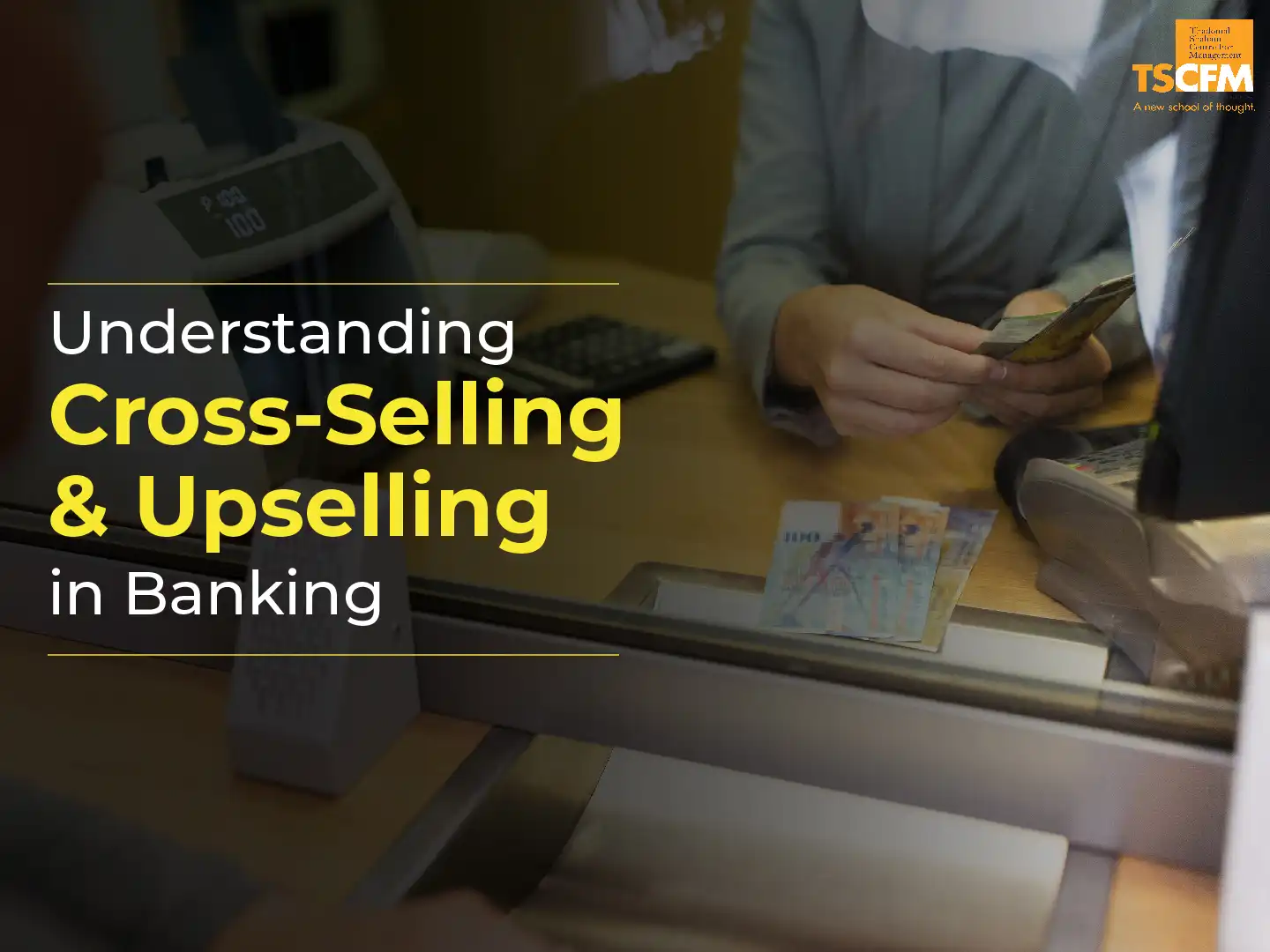Search
Banking Course
object(WP_Query)
[
"query" =>array(6)
[
"post_type" => string(4) "post"
"orderby" => string(4) "date"
"order" => string(4) "DESC"
"posts_per_page" => int(12)
"paged" => string(1) "1"
"tax_query" =>array(1)
[
0 =>array(3)
[
"taxonomy" => string(8) "post_tag"
"field" => string(4) "slug"
"terms" =>array(1)
[
0 => string(14) "banking-course"
]
]
]
]
"query_vars" =>array(65)
[
"post_type" => string(4) "post"
"orderby" => string(4) "date"
"order" => string(4) "DESC"
"posts_per_page" => int(12)
"paged" => int(1)
"tax_query" =>array(1)
[
0 =>array(3)
[
"taxonomy" => string(8) "post_tag"
"field" => string(4) "slug"
"terms" =>array(1)
[
0 => string(14) "banking-course"
]
]
]
"error" => string(0) ""
"m" => string(0) ""
"p" => int(0)
"post_parent" => string(0) ""
"subpost" => string(0) ""
"subpost_id" => string(0) ""
"attachment" => string(0) ""
"attachment_id" => int(0)
"name" => string(0) ""
"pagename" => string(0) ""
"page_id" => int(0)
"second" => string(0) ""
"minute" => string(0) ""
"hour" => string(0) ""
"day" => int(0)
"monthnum" => int(0)
"year" => int(0)
"w" => int(0)
"category_name" => string(0) ""
"tag" => string(0) ""
"cat" => string(0) ""
"tag_id" => int(572)
"author" => string(0) ""
"author_name" => string(0) ""
"feed" => string(0) ""
"tb" => string(0) ""
"meta_key" => string(0) ""
"meta_value" => string(0) ""
"preview" => string(0) ""
"s" => string(0) ""
"sentence" => string(0) ""
"title" => string(0) ""
"fields" => string(0) ""
"menu_order" => string(0) ""
"embed" => string(0) ""
"category__in" => array(0)
"category__not_in" => array(0)
"category__and" => array(0)
"post__in" => array(0)
"post__not_in" => array(0)
"post_name__in" => array(0)
"tag__in" => array(0)
"tag__not_in" => array(0)
"tag__and" => array(0)
"tag_slug__in" => array(0)
"tag_slug__and" => array(0)
"post_parent__in" => array(0)
"post_parent__not_in" => array(0)
"author__in" => array(0)
"author__not_in" => array(0)
"ignore_sticky_posts" => bool(false)
"suppress_filters" => bool(false)
"cache_results" => bool(true)
"update_post_term_cache" => bool(true)
"lazy_load_term_meta" => bool(true)
"update_post_meta_cache" => bool(true)
"nopaging" => bool(false)
"comments_per_page" => string(2) "50"
"no_found_rows" => bool(false)
]
"tax_query" =>object(WP_Tax_Query)
[
"queries" =>array(1)
[
0 =>array(5)
[
"taxonomy" => string(8) "post_tag"
"terms" =>array(1)
[
0 => string(14) "banking-course"
]
"field" => string(4) "slug"
"operator" => string(2) "IN"
"include_children" => bool(true)
]
]
"relation" => string(3) "AND"
"queried_terms" =>array(1)
[
"post_tag" =>array(2)
[
"terms" =>array(1)
[
0 => string(14) "banking-course"
]
"field" => string(4) "slug"
]
]
"primary_table" => string(8) "wp_posts"
"primary_id_column" => string(2) "ID"
"protected:table_aliases" =>array(1)
[
0 => string(21) "wp_term_relationships"
]
]
"meta_query" =>object(WP_Meta_Query)
[
"queries" => array(0)
"relation" => NULL
"meta_table" => NULL
"meta_id_column" => NULL
"primary_table" => NULL
"primary_id_column" => NULL
"protected:table_aliases" => array(0)
"protected:clauses" => array(0)
"protected:has_or_relation" => bool(false)
]
"date_query" => bool(false)
"queried_object" =>object(WP_Term)
[
"term_id" => int(572)
"name" => string(14) "Banking Course"
"slug" => string(14) "banking-course"
"term_group" => int(0)
"term_taxonomy_id" => int(572)
"taxonomy" => string(8) "post_tag"
"description" => string(0) ""
"parent" => int(0)
"count" => int(19)
"filter" => string(3) "raw"
]
"queried_object_id" => int(572)
"request" => string(385) "SELECT SQL_CALC_FOUND_ROWS wp_posts.ID FROM wp_posts LEFT JOIN wp_term_relationships ON (wp_posts.ID = wp_term_relationships.object_id) WHERE 1=1 AND ( wp_term_relationships.term_taxonomy_id IN (572) ) AND wp_posts.post_type = 'post' AND (wp_posts.post_status = 'publish' OR wp_posts.post_status = 'acf-disabled') GROUP BY wp_posts.ID ORDER BY wp_posts.post_date DESC LIMIT 0, 12"
"posts" =>array(12)
[
0 =>object(WP_Post)
[
"ID" => int(901049)
"post_author" => string(2) "26"
"post_date" => string(19) "2024-11-11 11:00:21"
"post_date_gmt" => string(19) "2024-11-11 05:30:21"
"post_content" => string(8573) "<strong>Introduction</strong> <h2><strong>The Importance of the Banking Sector</strong></h2> Banking is a key part of our economy, helping people and businesses with their financial needs. It manages transactions, investments, and loans, which are crucial for economic growth. Banking acts as a financial backbone, keeping things running smoothly. As technology and regulations change, the banking sector evolves, offering a variety of job opportunities. This makes it an attractive field for many graduates with different interests and skills. <h2>Why Choose a Career in Banking?</h2> A career in banking is often seen as stable and rewarding. The sector is growing, and there is a constant need for financial expertise. This makes banking a solid choice for long-term career prospects. Banking jobs come with competitive salaries and chances for career growth. Plus, you’ll work with the latest financial technologies. These factors make banking a promising career path. <h3><strong>Read More Information: <a href="https://tscfm.org/blogs/top-reasons-to-study-banking-and-finance-course/" target="_blank" rel="noopener noreferrer">Benefits of Studying Banking and Finance</a></strong></h3> <strong>This article will help you understand how to start your banking career after graduation and guide you toward success in this exciting field.</strong> <h2><strong>1. Understanding the Banking Sector</strong></h2> <h3><strong>- Exploring Banking Careers</strong></h3> The banking sector has many career options, each with its own focus. Key areas include retail banking, investment banking, corporate banking, and wealth management. Retail banking involves working directly with customers, offering services like savings accounts, loans, and mortgages. Investment banking helps companies raise money by issuing stocks and bonds or through mergers and acquisitions. Corporate banking deals with financial services for businesses, such as lending and managing cash. Wealth management focuses on providing personalized financial services to wealthy individuals. <h3><strong>- Skills Needed for Banking</strong></h3> To succeed in banking, certain skills are important. Analytical skills help you understand financial data and make decisions. Strong communication skills are needed to interact with clients and colleagues effectively. Attention to detail is crucial for managing transactions accurately. A good understanding of financial regulations and market trends also helps in navigating the ever-changing banking landscape. Gaining these skills through education and experience will improve your chances in the banking industry. <h2><strong>2. Educational Pathways</strong></h2> <h3><strong>- Courses for a Banking Career</strong></h3> To start a career in banking, you need the right education. Various courses can help, such as diplomas, certificates, and specialized degrees in banking and finance. One valuable course is in wealth management. These programs teach you how to manage investments and plan finances, which is important for roles in wealth management and advisory services. They equip you with the skills needed to handle client portfolios and make smart financial decisions. <h3><strong>- The Value of Certifications</strong></h3> Certifications can boost your qualifications and help you stand out. A notable certification is the <strong><a href="https://tscfm.org/courses/certificate-in-wealth-management/">Certified Wealth Manager (CWM) course</a></strong> offered by TSCFM. The CWM course provides advanced knowledge in wealth management, including investment strategies and estate planning. Earning this certification shows your expertise and commitment, giving you an edge in the competitive job market. <h2><strong>3. The Role of Wealth Management in Banking</strong></h2> <h3><strong>- What is wealth management?</strong></h3> Wealth management is a specialized area in banking that provides personalized financial services to wealthy clients. It involves managing their investments, planning their estates, and advising on taxes and retirement. With the financial world becoming more complex, there is a growing demand for skilled wealth managers. These professionals help clients navigate financial markets and achieve their long-term financial goals. <h3><strong>- Skills and Knowledge Needed</strong></h3> To excel in wealth management, you need specific skills and knowledge. Strong analytical skills are essential for understanding market trends and investment opportunities. Good communication skills are needed to build and maintain client relationships. You should also have a solid grasp of financial instruments, regulations, and tax issues. Staying updated on market developments and economic factors is important for making informed decisions. <h3><strong>- Career Opportunities</strong></h3> A career in wealth management offers many advancement opportunities. Roles include financial advisor, portfolio manager, and private banker. Each role involves different tasks but aims to provide excellent financial guidance to clients. As the sector grows, so do the opportunities for those with the right skills and certifications. With the right education and experience, you can build a successful career helping clients achieve their financial goals. <h3><strong>Read More Information: <a href="https://tscfm.org/blogs/certificate-in-wealth-management-course-overview/" target="_blank" rel="noopener noreferrer">All About Wealth Management Course</a></strong></h3> <h2><strong>4. Steps to Kickstart Your Banking Career</strong></h2> <h3><strong>- Getting Started in Banking</strong></h3> Starting a banking career after graduation involves a few key steps. First, decide which area of banking interests you most, such as retail banking, investment banking, or wealth management. Then, research the qualifications and skills needed for that path. Next, pursue relevant courses and certifications. Specialized banking courses or certifications like the Certified Wealth Manager (CWM) can make your resume stand out. <h3><strong>- The Importance of Internships and Networking</strong></h3> Internships are crucial for gaining practical experience and understanding how the banking industry works. They also help you apply what you’ve learned in a real-world setting. Networking is equally important. Attend industry events, connect with professionals on LinkedIn, and seek out mentors. Building relationships with industry experts can lead to job opportunities and valuable career advice. Building a network is equally important. Visit industry events, build professional connections on LinkedIn with people, and search for mentors. Developing relationships with professionals in the industry can result in hiring opportunities and helpful career advice. <h3><strong>- Crafting Your Resume</strong></h3> A standout resume is key to landing a banking job. Highlight your relevant coursework, certifications, and any internships or projects related to banking. Tailor your resume to emphasize skills and experiences that match the job you’re applying for. Include specific achievements and examples to show your abilities and accomplishments. A well-crafted resume can make a big difference in catching the attention of potential employers. <h3><strong>Conclusion</strong></h3> <h3><strong>Recap of Key Points</strong></h3> Starting a career in banking involves understanding different career paths, obtaining the right education, and gaining practical experience. Focusing on areas like retail banking, investment banking, and wealth management helps you find the right fit for your skills and interests. Educational programs and certifications, such as the Certified Wealth Manager (CWM), are important for preparing for a successful career. Internships and networking further enhance your prospects, offering practical experience and industry connections. <h3><strong>TSCFM’s CWM Course</strong></h3> For those interested in wealth management, <strong><a href="https://tscfm.org/courses/">TSCFM's Certified Wealth Manager course</a></strong> is an excellent choice. It provides advanced knowledge and skills needed for a successful career in wealth management. By enrolling in TSCFM’s CWM course, you’ll gain valuable expertise and a competitive edge in the banking industry. <p style="text-align: center;">[aw2.module slug="blog-enquiry-popup" text="Enroll Now!" course="certificate-in-wealth-management" css_class="btn btn-primary"/]</p>"
"post_title" => string(58) "How to Start a Successful Banking Career After Graduation?"
"post_excerpt" => string(0) ""
"post_status" => string(7) "publish"
"comment_status" => string(4) "open"
"ping_status" => string(4) "open"
"post_password" => string(0) ""
"post_name" => string(34) "career-in-banking-after-graduation"
"to_ping" => string(0) ""
"pinged" => string(0) ""
"post_modified" => string(19) "2024-11-11 18:13:16"
"post_modified_gmt" => string(19) "2024-11-11 12:43:16"
"post_content_filtered" => string(0) ""
"post_parent" => int(0)
"guid" => string(27) "https://tscfm.org/?p=901049"
"menu_order" => int(0)
"post_type" => string(4) "post"
"post_mime_type" => string(0) ""
"comment_count" => string(1) "0"
"filter" => string(3) "raw"
]
1 =>object(WP_Post)
[
"ID" => int(890470)
"post_author" => string(2) "26"
"post_date" => string(19) "2024-10-21 11:00:08"
"post_date_gmt" => string(19) "2024-10-21 05:30:08"
"post_content" => string(3325) "The foremost important aspect for a banker is to satisfy customer needs. It is essential to build and retain relationships with customers. However, what is the process to do so? There are types of customers bankers connect with, so what are the top methods to communicate effectively with all such customers? <h4><strong>In this blog, </strong><strong>We have curated </strong></h4> <h2><strong>A few methods that you can use to communicate effectively with customers.</strong></h2> <strong>Let’s learn!!</strong> <h3>1] Be a Good Listener</h3> The first step toward effective communication is to be a good listener. Many believe that speaking fluently is the key aspect of effective communication (however, to an extent, it is true). But, many neglect the significant step of being a good listener. Listening to customers first helps know their needs or wants, what difficulties they are facing, or if they have any suggestions or feedback to share. Only if you listen carefully it will be possible to understand and revert assuredly. <h3>2] Be Polite</h3> There are likely chances of customers getting exasperated with particular features or services while banking; however, to fight fire with fire is not the right approach to be used. It is essential to stay calm and composed with them. Get them heard and maintain politeness and a smile on your face. <h3>3] Try to resolve their query</h3> Have a mindset of how you can solve the customers' problems. Despite the huge problem, you must ensure a better solution for it. This can be only possible when you listen to the customer quietly, figure out the different methods you can use, finally pick the best solution out of it and politely try to explain it to the customer. <h3>4] Manage your Vocal Pitch</h3> There are circumstances when the vocal pitch might get too high or too low. However, it is vital to maintain the same level of the vocal pitch with the customers. For instance, the customer is resentful due to some inconvenience caused during the service. Thus, the banker must not high-pitch the customer. Or suppose you are unaware of what you must answer the customer; your vocal pitch might get too low. However, remember not to lower your vocal pitch and be confident and assertive. <h3>5] Choose your words carefully</h3> While you communicate with customers, remember to choose words carefully. Avoid overpromising, and know the company rules and policies to avoid future troubles. There are likely higher chances of customers misinterpreting your words. Therefore, ensure twice that you convey everything appropriately to customers. Broadly learn how to communicate effectively and build good customer relationships at banks by pursuing a <strong><a href="https://tscfm.org/courses/certificate-in-banking-and-financial-services/" target="_blank" rel="noopener noreferrer">Certificate in Banking and Financial Services (CBFS)</a></strong> It helps you develop Business English, marketing, financial management, and Global Management skills. Learn more about what it has to offer you. <h4><strong>Read More Post: <a href="https://tscfm.org/blogs/what-are-the-tips-to-improve-business-english/" target="_blank" rel="noopener noreferrer">How To Improve Your English Communication Skills?</a></strong></h4>"
"post_title" => string(55) "How to communicate effectively with customers at banks?"
"post_excerpt" => string(0) ""
"post_status" => string(7) "publish"
"comment_status" => string(6) "closed"
"ping_status" => string(4) "open"
"post_password" => string(0) ""
"post_name" => string(54) "how-to-communicate-effectively-with-customers-at-banks"
"to_ping" => string(0) ""
"pinged" => string(0) ""
"post_modified" => string(19) "2024-11-11 17:44:11"
"post_modified_gmt" => string(19) "2024-11-11 12:14:11"
"post_content_filtered" => string(0) ""
"post_parent" => int(0)
"guid" => string(27) "https://tscfm.org/?p=890470"
"menu_order" => int(0)
"post_type" => string(4) "post"
"post_mime_type" => string(0) ""
"comment_count" => string(1) "0"
"filter" => string(3) "raw"
]
2 =>object(WP_Post)
[
"ID" => int(888330)
"post_author" => string(2) "26"
"post_date" => string(19) "2024-10-18 02:30:59"
"post_date_gmt" => string(19) "2024-10-17 21:00:59"
"post_content" => string(4693) "The Banking, Financial Services & Insurance (BFSI) industry is a vast industry growing at a tremendous pace. Therefore, before you set foot in this industry, you must note ‘<strong>Not to do</strong>’ factors in the organization to avoid any problems during work-life. <h4><strong>Let us help guide you with a few points that you must avoid in the Banking, Financial Services & Insurance Industry, and we will make you shine.</strong></h4> <h3><strong>1] Do Not Be Inflexible</strong></h3> The foremost important factor in the Banking, Financial Services & Insurance (BFSI) Sector is to stay updated with the <strong><a href="https://tscfm.org/blogs/all-you-need-to-know-about-digital-currency-and-cryptocurrency/" target="_blank" rel="noopener noreferrer">latest trends and changes</a></strong> in the environment. The era is changing rapidly and becoming digitally oriented these days. The technologies play an active role in the BFSI Sector; this is why up-gradation has become an essential aspect. Therefore, it is advisable to avoid being rigid; if you have opted for this sector as a career, it is vital to be flexible and expand the learning curve to widen your knowledge perspective and change as per the trending environment to be ahead of the competition. <h3>2] Do Not Miscommunicate</h3> Being in the Banking, Financial Services & Insurance (BFSI) sector, it is essential to communicate correctly to the customers rather than giving part or inadequate information. The banker must share the relevant information and knowledge with the customers to help them understand the terms and different banking jargon. The inadequate knowledge will build gaps between the banker and the customers, resulting in discontinuation in the relationship and will also tarnish the bank's image. <h3><strong>3] Do Not Create Gaps in Communication</strong></h3> Communication is one of the most important factors in any industry. With a lack of communication, flourishing in the sector becomes challenging. If we discuss the Banking, Financial Services & Insurance (BFSI) sector, then while building a new relationship with the customer, it is vital to maintain frequent communication with the customer and avoid communication gaps. Communication gaps create misconceptions and errors. Retaining will be a challenge for the banker. Whereas maintaining relationships with existing customers, communication also plays an important role. Communicating customarily with the customer will make them feel significant. Therefore, the continuity with the customers will not halt in any manner. Thus, do not create communication gaps. <h3><strong>4] Do Not Hold Back Yourself</strong></h3> We strongly believe that change is the only constant. Therefore, upgrading ourselves most often is a wise decision anyone can make. The Banking, Financial Services & Insurance (BFSI) sector is blooming and advancing with various technologies; upskilling ourselves to handle the rapid changes and walk hand-in-hand with the technical differences is becoming crucial. Being in the BFSI sector, adaptability, flexibility, analytical skills, and many other skills are required to sustain this competitive market. Hence, we suggest that you do not restrain yourself from exploring, learning, or upskilling. <h3><strong>5] Do Not Look Disorganized</strong></h3> If you are supposedly a banker in the BFSI industry, it is crucial to look professional. Keep your desk clutter-free, make it more organized, wear formal, look tidy, and speak softly. No customer will rely on terms of money from a banker who looks disorganized or uncivilized. They will always approach a banker who looks refined & well-mannered. If you have the qualities of a banker but lack knowledge of the Banking, Financial Services & Insurance (BFSI) sector, then you don't have to worry. <strong><a href="https://tscfm.org/">Thadomal Shahani Centre for Management (TSCFM)</a></strong> provides various <strong><a href="https://tscfm.org/courses/">banking-related courses</a></strong> for students to learn and develop essential skills and be industry-ready. <strong>Read More:</strong> <ul> <li><strong><a href="https://tscfm.org/blogs/methods-to-get-high-paying-jobs-in-top-banking-companies/" target="_blank" rel="noopener noreferrer">What are the solutions to getting high-paying jobs?</a></strong></li> <li><strong><a href="https://tscfm.org/blogs/know-what-are-the-5-things-that-are-essential-to-be-a-banker/" target="_blank" rel="noopener noreferrer">What are the top 5 things that are essential to be a banker?</a></strong></li> </ul>"
"post_title" => string(69) "What are the top 5 things to avoid in the Banking & Finance industry?"
"post_excerpt" => string(0) ""
"post_status" => string(7) "publish"
"comment_status" => string(6) "closed"
"ping_status" => string(4) "open"
"post_password" => string(0) ""
"post_name" => string(55) "what-are-the-top-5-things-to-avoid-in-the-bfsi-industry"
"to_ping" => string(0) ""
"pinged" => string(0) ""
"post_modified" => string(19) "2024-10-18 17:32:35"
"post_modified_gmt" => string(19) "2024-10-18 12:02:35"
"post_content_filtered" => string(0) ""
"post_parent" => int(0)
"guid" => string(27) "https://tscfm.org/?p=888330"
"menu_order" => int(0)
"post_type" => string(4) "post"
"post_mime_type" => string(0) ""
"comment_count" => string(1) "0"
"filter" => string(3) "raw"
]
3 =>object(WP_Post)
[
"ID" => int(888990)
"post_author" => string(2) "26"
"post_date" => string(19) "2024-10-14 11:00:53"
"post_date_gmt" => string(19) "2024-10-14 05:30:53"
"post_content" => string(7274) "<h2><span style="color: #073a75;"><strong>What is the BFSI Course?</strong></span></h2> BFSI is the abbreviation for Banking, Financial Services, and Insurance. BFSI Course helps to study comprehensively the Banking, Financial Services, and Insurance Industry; moreover, it aids in developing requisite skills. Along with these, it provides certifications after completion of the course. Before this, let us learn the scope and career opportunities, eligibility criteria, admission process, and fees of the Certificate in Banking and Financial Services and Certificate in Wealth Management (CWM) program. <h3><strong><span style="color: #073a75;">Scope in Banking and Finance Courses</span></strong></h3> With the Banking and Finance course, there is scope for the student to increase various skills that are vital in top companies. With the help of these skills, it is possible to get secured jobs in your desired field. <h4><strong>- Business English Communication Skills</strong></h4> Business English is essential for setting foot in any industry. Excellent business English skills will help you sustain in the market and boost your confidence to participate and engage in various activities & events. Therefore, our CWM and Certificate in Banking and Financial Services Course will help you obtain Business English Communication skills by teaching you writing and speaking skills through various role-play and simulation activities that will shape you competently to become corporate-ready. <h4><strong>- Business Marketing skills</strong></h4> Business marketing skills play an important role in the BFSI Sector. Learning the fundamentals of business marketing is vital. Therefore, getting the right training is significant for kickstarting your career in the BFSI Sector. Our course will help you get the right training by teaching you the fundamentals of banking, financial services, and Insurance through different methods that will help you broaden your domain knowledge and develop your business marketing skills. <h4><strong>- Certificate in Wealth Management by TSCFM (In collaboration with MSU) </strong></h4> <h4><strong>- Certificate in NISM Series V A: Mutual Fund Distributors</strong></h4> <h2><span style="color: #073a75;"><strong>Job Opportunities after Banking and Finance Course</strong></span></h2> <strong>Types of jobs available after the Banking and Finance course are:</strong> <ul> <li>Sales Manager</li> <li>Retail Liabilities</li> <li>Risk-fraud Management</li> <li>Wealth Manager</li> <li>Investment advisor</li> <li>Investment Analyst</li> <li>Financial Analyst</li> <li>Financial Planner, and many more...</li> <li>Relationship Manager</li> <li>Customer Service Executive</li> <li>Business Development Executive</li> <li>Telesales officer</li> <li>KYC Profile</li> <li>Inbound Process</li> </ul> BFSI employees make an average salary of 24 lakhs, with most earning between 10 lakhs and 41 lakhs annually. <h2><strong><span style="color: #073a75;">Diploma in Banking and Finance Eligibility</span></strong></h2> The eligibility criteria to enroll in a Certificate in Banking and Financial Services and Wealth Management Course is that the applicant must be in the final year of Graduation, graduate, working professional, Age Limit of 28 years. <h3><span style="color: #073a75;"><strong>Admission Process</strong></span></h3> Getting admission to ‘Thadomal Shahani Centre for Management to pursue a certificate course in banking & finance and Wealth Management Certifications Course is quite simple and smooth as there are direct admissions taken. All you need to do is, <h3><span style="color: #073a75;"><strong>Banking Course Fees</strong></span></h3> The fees of any institute are <span style="color: #000000;">determined </span>by the collaboration of the experts and faculty, the courses offered, the amenities provided to students, the methodology of teaching, and, mainly, the job opportunities provided to students. On the whole, the fees are decided entirely on these factors. Thadomal Shahani Centre for Management also provides education loans and financial assistance to students for an easy learning process. <h3><span style="color: #073a75;"><strong>The Certificates You Will Receive</strong></span></h3> <strong>By enrolling in the Certificate in Banking and Financial Services (CBFS) course, you will earn the following two certifications:</strong> <ul> <li>A Certificate in Business English from Thadomal Shahani Centre for Management (TSCFM)</li> <li>A Certificate in Banking and Financial Services from Thadomal Shahani Centre for Management (TSCFM) – accredited by NSDC</li> </ul> Read more information about the above two certifications and the CBFS course!!! <strong><a href="https://tscfm.org/courses/certificate-in-banking-and-financial-services/">Certificate in Banking and Financial Services (CBFS)</a></strong> <strong>For those pursuing the Certificate in Wealth Management (CWM) course, you will receive below three certifications:</strong> <ul> <li>A Certificate in Wealth Management from TSCFM (in collaboration with MSU)</li> <li>A Certificate in Business English from TSCFM – focusing on Business English Communication Skills</li> <li>A Certificate in NISM Series V A – Mutual Fund Distributors</li> </ul> <p style="text-align: left;"><strong>Read more information about the above three certifications and the Wealth Management Course!!! <a href="https://tscfm.org/blogs/choose-a-career-in-wealth-management/">Certificate Course in Wealth management (CWM)</a></strong></p> Now your hunt is to understand how to enroll in the best & top institute ‘Thadomal Shahani Centre for Management. However, there is no rocket science in it; all you need to do is contact us for more information and details. <h4 style="text-align: center;"><span style="color: #000000;"><strong>To know more about the details</strong></span></h4> <p style="text-align: center;">[aw2.module slug="blog-enquiry-popup" text="Contact Here" course="certificate-in-wealth-management" css_class="btn btn-secondary"/]</p> <h3><span style="color: #073a75;"><strong>Is a Banking Course with Placement Possible?</strong></span></h3> For many aspirants, it is pie in the sky to kickstart their career in the top companies. Moreover, another stumbling block is finding an institute that offers a banking course with placement. However, opt for the right Institute that not only provides knowledge, develops skills, and offers certifications but also aids you in getting placement in reputed companies. All the best for your future!! <h4><strong>Related Banking Course:</strong></h4> <ul> <li><strong><a href="https://tscfm.org/blogs/certificate-in-banking-and-financial-services-cbfs-job-opportunities-certifications-eligibility-fees/" target="_blank" rel="noopener noreferrer">Certificate in Banking and Financial Services (CBFS): Know the course details</a></strong></li> <li><strong><a href="https://tscfm.org/blogs/certificate-in-wealth-management-course-overview/" target="_blank" rel="noopener noreferrer">All About Certificate in Wealth Management (CWM) Course</a></strong></li> </ul>"
"post_title" => string(84) "Banking and Finance Courses: Fees, Admission, Scope & Opportunities, and Eligibility"
"post_excerpt" => string(0) ""
"post_status" => string(7) "publish"
"comment_status" => string(6) "closed"
"ping_status" => string(4) "open"
"post_password" => string(0) ""
"post_name" => string(82) "bfsi-course-fees-admission-process-eligibility-skills-developed-and-certifications"
"to_ping" => string(0) ""
"pinged" => string(0) ""
"post_modified" => string(19) "2024-10-14 15:13:40"
"post_modified_gmt" => string(19) "2024-10-14 09:43:40"
"post_content_filtered" => string(0) ""
"post_parent" => int(0)
"guid" => string(27) "https://tscfm.org/?p=888990"
"menu_order" => int(0)
"post_type" => string(4) "post"
"post_mime_type" => string(0) ""
"comment_count" => string(1) "0"
"filter" => string(3) "raw"
]
4 =>object(WP_Post)
[
"ID" => int(890169)
"post_author" => string(2) "26"
"post_date" => string(19) "2024-10-09 11:00:04"
"post_date_gmt" => string(19) "2024-10-09 05:30:04"
"post_content" => string(3064) "We all have heard about the career opportunities and scope in the banking sector. But how significant is it as a career in reality? <h2><strong>Why is banking often considered one of the best career choices?</strong></h2> <strong>Let’s dive into the reasons!</strong> <h3><strong>Reason </strong>1- Rapid Growth</h3> The banking sector is growing at an impressive rate. With the integration of technology, banking services have become more seamless and efficient than ever before. This rapid development is creating a wealth of new opportunities for those interested in pursuing a career in wealth management or a banking and finance course. <h3><strong>Reason 2-</strong> <strong>Job Stability</strong></h3> The banking industry is known for its job security, offering more stability than most other sectors. It has proven to be resilient during major crises, like the Global Financial Crisis and the COVID-19 pandemic, where it remained strong even under difficult circumstances. <h3><strong>Reason 3- </strong><strong>Fixed Work Hours</strong></h3> One of the perks of working in banking is having a fixed schedule. Employees can enjoy regular working hours, which gives them ample time to engage in personal development, pursue hobbies, or spend quality time with loved ones. <h3><strong>Reason 4- </strong><strong>Social Status</strong></h3> A career in banking is viewed as highly professional and comes with a certain level of social prestige. Working in this sector not only provides financial benefits but also elevates one’s standing in society. <h3><strong>Reason 5- </strong><strong>Attractive Salary Packages</strong></h3> Banking jobs offer attractive salary packages. High-paying positions such as financial managers, auditors, loan officers, and wealth management professionals are just a few examples of roles that come with excellent compensation. If you’re looking to learn more about the sector, the <strong><a href="https://tscfm.org/courses/certificate-in-wealth-management/">Wealth Management Course in Mumbai</a></strong> offered by the Thadomal Shahani Centre for Management (TSCFM) is a great way to gain knowledge and certifications in Banking, Financial Services, and Insurance. <p style="text-align: left;">[aw2.module slug="blog-enquiry-popup" text="Enroll Now!" course="certificate-in-wealth-management" css_class="btn btn-primary"/]</p> <h5><strong>More Topics on Banking:</strong></h5> <ul> <li><strong><a href="https://tscfm.org/blogs/top-reasons-to-study-banking-and-finance-course/" target="_blank" rel="noopener noreferrer">Why is Banking and Finance a Good Career Option?</a></strong></li> <li><strong><a href="https://tscfm.org/blogs/what-are-the-job-titles-and-salary-packages-in-the-banking-sector/">What are the Job Titles and Salary Packages in the Banking Sector?</a> </strong></li> <li><strong><a href="https://tscfm.org/blogs/methods-to-get-high-paying-jobs-in-top-banking-companies/">How to get high-paying jobs in top banking companies?</a></strong></li> </ul>"
"post_title" => string(42) "Why choose the banking sector as a career?"
"post_excerpt" => string(0) ""
"post_status" => string(7) "publish"
"comment_status" => string(6) "closed"
"ping_status" => string(4) "open"
"post_password" => string(0) ""
"post_name" => string(41) "why-choose-the-banking-sector-as-a-career"
"to_ping" => string(0) ""
"pinged" => string(0) ""
"post_modified" => string(19) "2024-10-14 13:13:19"
"post_modified_gmt" => string(19) "2024-10-14 07:43:19"
"post_content_filtered" => string(0) ""
"post_parent" => int(0)
"guid" => string(27) "https://tscfm.org/?p=890169"
"menu_order" => int(0)
"post_type" => string(4) "post"
"post_mime_type" => string(0) ""
"comment_count" => string(1) "0"
"filter" => string(3) "raw"
]
5 =>object(WP_Post)
[
"ID" => int(870232)
"post_author" => string(2) "26"
"post_date" => string(19) "2024-09-05 10:30:53"
"post_date_gmt" => string(19) "2024-09-05 05:00:53"
"post_content" => string(4219) "Before we begin with the blog, we ask you a question. Do you want to study banking and finance courses just because your peers suggested you, or do your interest truly lie in this particular industry? If your answer is yes to the first question, all you need to do is calm your mind, listen to your thoughts, and think wisely. Is this where my real interest lies? Peers will surely guide you on what to choose and what not to do. But the decisions are yours. So why not invest time in yourself and decide what suits you best rather than getting mystified by various suggestions? And if you think about what the banking and finance course is or why you choose banking and finance; so we have crafted for you the top reasons to study Banking and Finance. <h5><strong>Let's look at each of these reasons in more detail.</strong></h5> <h3><strong>1] Keen Interest in gaining domain knowledge:</strong></h3> If you want to gain domain knowledge of the Banking and Finance Industry, what could be the other best reason you need it? It is one of the most important reasons you should pursue your career in this field. Whenever you feel you want to learn, you should never stop yourself <h3><strong>2] Want to be expertise:</strong></h3> Are you planning to excel in this industry? Do you want to have in-depth knowledge? Banking and Financial Service Insurance (BFSI) courses have many subjects to help you become an expert. You will learn subjects like Financial Accounting, Quantitative Methods, Financial markets, International Banking and Finance, Financial Sevices Management, Information technology in Banking and Insurance, and many more. <h3><strong>3] This sector is always in-demand:</strong></h3> The BFSI sector is always in-demand, and it is filled with challenges and opportunities. The competition is high here. Therefore, if you are interested in accepting challenges, this is the best reason to study the Banking and Finance course. Additionally, it does offer a good salary package which is also crucial in life. <h3>4] Personal and professional growth:</h3> These studies are beneficial for you not only in professional growth but also in personal growth. It will help you to learn managerial skills, but it will also help you learn how to save money and have a proper budget for times of emergencies, traveling, and education. Moreover, where to invest and how to invest. You will understand the difference between price and value. By mastering these financial concepts and applying them in your life, it will become easier to keep track of money, reduce unnecessary expenses, and slowly work towards financial independence. We are aware now that one question must be hammering your mind: where to find the best professional banking and finance course that offers placement support in Mumbai. Relax! We have got your back. You can enroll in one of the <strong><a href="https://tscfm.org/">Best Institute for Diplomas in Banking and Finance</a></strong>, named ‘TSCFM, which provides a Certificate Course in Banking and Finance. <p style="text-align: center;">[aw2.module slug="blog-enquiry-popup" text="Enquire Now" course="certificate-in-wealth-management" css_class="btn btn-primary"/]</p> We believe now you have the top reasons to study the <strong><a href="https://tscfm.org/courses/certificate-in-wealth-management/">Banking and Finance Certificate Course </a></strong>and are well-versed in the benefits of studying banking and finance. We believe now you have the top reasons to study the Banking and Finance Course. <h5><strong>More Topics on Banking:</strong></h5> <ul> <li><strong><a href="https://tscfm.org/blogs/why-finance-is-a-best-career-path-to-choose/" rel="noopener noreferrer">Why Choose Finance as a Career?</a> </strong></li> <li><strong><a href="https://tscfm.org/blogs/what-are-the-job-titles-and-salary-packages-in-the-banking-sector/">What are the Job Titles and Salary Packages in the Banking Sector?</a> </strong></li> <li><strong><a href="https://tscfm.org/blogs/methods-to-get-high-paying-jobs-in-top-banking-companies/">How to get high-paying jobs in top banking companies?</a></strong></li> </ul>"
"post_title" => string(47) "Benefits of Studying Banking and Finance Course"
"post_excerpt" => string(0) ""
"post_status" => string(7) "publish"
"comment_status" => string(6) "closed"
"ping_status" => string(4) "open"
"post_password" => string(0) ""
"post_name" => string(47) "top-reasons-to-study-banking-and-finance-course"
"to_ping" => string(0) ""
"pinged" => string(0) ""
"post_modified" => string(19) "2024-09-10 14:56:35"
"post_modified_gmt" => string(19) "2024-09-10 09:26:35"
"post_content_filtered" => string(0) ""
"post_parent" => int(0)
"guid" => string(26) "http://tscfm.org/?p=870232"
"menu_order" => int(0)
"post_type" => string(4) "post"
"post_mime_type" => string(0) ""
"comment_count" => string(1) "0"
"filter" => string(3) "raw"
]
6 =>object(WP_Post)
[
"ID" => int(891307)
"post_author" => string(2) "26"
"post_date" => string(19) "2024-08-17 14:19:46"
"post_date_gmt" => string(19) "2024-08-17 08:49:46"
"post_content" => string(2967) "Language allows for sharing or expressing various ideas, expressions, thoughts, and feelings. A crucial component of interpersonal connection is language. However, it should not act as a challenge but as a powerful tool to convey your thoughts and ideas. Banking & Finance Industry: Considering this sector, the language element holds huge significance. Therefore, many young heads find it challenging to sustain due to language barriers. <h4><strong>Let us help you learn what the key fundamentals of language in the Banking & Finance Industry are.</strong></h4> <h4><strong>1. Know the Jargon & Terminology</strong></h4> Jargons and terminologies are formal or technical words used in the different fields, sectors, and Industries by professionals; this process makes it easier for professionals to communicate and other groups to decode. However, it is one of the critical tools of communication. Therefore, knowing the jargon and terminologies of the sector/industry, you seek to make a career. Without knowing the necessary jargon or terminology, it will become challenging for the employee to sustain. <h3><strong>2. The clarity in Internal & External Communication</strong></h3> Communication is vital, and having clarity in communication is crucial. Communication gaps create misconceptions and miscommunication among each other. However, it is important to make a habit of communicating with clarity. Team coordination is essential for the success of the company and the professional & personal growth of the team members. Thus, language should never become a barrier to communication. While coordinating with team members, there should be clarity & brevity. Whereas external communication, i.e. around the globe, communication is equally important, The marketing materials, company details, and all the other vital information should be in a localized language that the target audience must easily understand. <h3>3. Smooth Customer Coordination</h3> We are all well aware that customers are the king, and we should treat them skillfully. The first step is to build a relationship with customers; later, you must learn how to maintain a lifelong relationship with customers. In the BFSI Sector, customer relationship management is one of the most important tools. Customer relationship management's initial and most essential step is to be a good listener and communicator. These two factors are significant in building and maintaining relationships with customers. In case you don’t have to face these language barriers in your career journey, You must simply opt for the Certificate in Wealth Management course to <strong><a href="https://tscfm.org/courses/certificate-in-wealth-management/">learn about the BFSI sector and Relationship Management</a></strong>. Moreover, to develop Business English communication, Financial Management, Global Management, and Business Marketing skills."
"post_title" => string(59) "Language Challenges Faced in the Banking & Finance Industry"
"post_excerpt" => string(0) ""
"post_status" => string(7) "publish"
"comment_status" => string(6) "closed"
"ping_status" => string(4) "open"
"post_password" => string(0) ""
"post_name" => string(57) "language-challenges-faced-in-the-banking-finance-industry"
"to_ping" => string(0) ""
"pinged" => string(0) ""
"post_modified" => string(19) "2024-08-21 12:45:31"
"post_modified_gmt" => string(19) "2024-08-21 07:15:31"
"post_content_filtered" => string(0) ""
"post_parent" => int(0)
"guid" => string(27) "https://tscfm.org/?p=891307"
"menu_order" => int(0)
"post_type" => string(4) "post"
"post_mime_type" => string(0) ""
"comment_count" => string(1) "0"
"filter" => string(3) "raw"
]
7 =>object(WP_Post)
[
"ID" => int(898109)
"post_author" => string(2) "26"
"post_date" => string(19) "2024-07-24 15:13:39"
"post_date_gmt" => string(19) "2024-07-24 09:43:39"
"post_content" => string(6103) "In the large landscape of the banking industry, finance institutions are constantly exploring different and innovative ways to improve customer relationships. All of these are attempts to boost revenue and provide top-class services for customers. Two essential strategies that play a crucial role in achieving these objectives are cross-selling and upselling. Let us look at some important aspects of cross-selling and upselling in banking, highlighting their differences, importance, and how they contribute to the growth in the banking sector. <h2><strong>Understanding </strong><strong>Upselling and </strong><strong>Cross Selling in Banking</strong></h2> Banks make use of cross-selling and upselling strategies to increase the value of each customer relationship. <h3><strong>What is Upselling in Banking?</strong></h3> Upselling, on the other hand, involves persuading customers to buy an upgrade of a product. This can include a purchase of a more premium version of a product or service they already have. An example of upselling is a customer using a basic credit card might be encouraged to buy a premium card with added benefits. <h3><strong>What is Cross Selling in Banking?</strong></h3> Cross-selling involves offering customers additional products or services that are complementary to the products the customers already have. For instance, in a cross-selling setup, a customer with a savings account might be presented with an offer for a credit card or an insurance product. <h2><strong>Differences Between </strong><strong>Upselling and </strong><strong>Cross-Selling in Banking</strong></h2> While both upselling and cross-selling aim to increase revenue, both strategies have a different approach to selling and offering the types of products. When one considers the type of approach, upselling focuses on improving an existing product or service. This is a process to encourage the customer to opt for a premium version of a particular product. On the other hand, cross-selling involves introducing new products or services. This helps in expanding the product range with the customer. <h2><strong>Why Are Upselling and Cross-Selling Important in Banking?</strong></h2> <h3><strong>Top 3 Reasons</strong></h3> <h3><strong>1. Generate Revenue</strong></h3> One of the primary reasons for adopting cross-selling and upselling strategies is to increase revenue generation. By exploring the needs and requirements of the already existing customer base, banks can establish trust and understanding to offer additional products or upgrades. This becomes a win-win scenario for the bank. <h3><strong>2. Retain customers</strong></h3> Cross-selling and upselling contribute to stronger customer relationships. When customers find multiple products in the same bank, they are more likely to stay loyal to the same institution. These strategies will help the bank to offer every possible financial product under the same roof. Moreover, banks can use customer data to identify specific preferences and needs which allows the bank to make targeted and personalized offers. This not only enhances the customer experience but also increases customer retention. <h3><strong>3. Competitive Edge</strong></h3> The financial market is now extremely competitive. Every bank now offers a diverse range of products and personalized services. Utilizing strategies like that of Cross-selling and Upselling gives the bank a competitive edge. It positions them as a provider of all financial solutions that can cater to the different needs of their customers. As the banking industry evolves, professionals need to stay updated with the latest trends and skills. <strong><a href="https://tscfm.org/courses/certificate-in-wealth-management/" rel="noopener noreferrer">Short-term certification course in wealth management</a></strong> are designed to provide quick and targeted knowledge regarding the field. These courses are equipped with a curriculum that covers specific areas of banking, equipping professionals with the expertise needed in today’s fast-paced environment. Thadomal Shahani Centre for Management (TSCFM) offers a range of <strong><a href="https://tscfm.org/courses/" target="_blank" rel="noopener noreferrer">Job Oriented Certification Courses in Banking</a></strong>. These courses are crafted by industry experts and cover topics such as financial analysis, risk management, and digital banking. By enrolling in these programs, banking professionals can stay ahead in their careers and acquire the necessary skills to survive and successfully evolve the ever-changing landscape of the financial sector. In conclusion, cross-selling and upselling are important strategies for banks that want to grow and enhance customer relationships. By understanding these approaches and implementing them effectively, banks can successfully meet the diverse needs of their customers. Additionally, this will also help them attain their business objectives. Furthermore, candidates wanting to make a successful career in banking can invest in short-term certification courses from reputable institutions like the <strong><a href="https://tscfm.org/">Thadomal Shahani Centre for Management. </a></strong> This course will ensure that banking professionals will remain at the forefront of the industry, ready to tackle new challenges and opportunities. <p style="text-align: center;">[aw2.module slug="blog-enquiry-popup" text="Enroll Now!" course="certificate-in-wealth-management" css_class="btn btn-primary"/]</p> <h5><strong>More Topics in Banking:</strong></h5> <ul> <li><strong><a href="https://tscfm.org/blogs/the-important-role-of-sales-in-the-banking-industry/" target="_blank" rel="noopener noreferrer">What is the importance of sales in the banking sector?</a> </strong></li> <li><strong><a href="https://tscfm.org/blogs/the-importance-of-microsoft-excel-in-the-banking-sector/" target="_blank" rel="noopener noreferrer">The Importance of Microsoft Excel in the Banking Sector</a></strong></li> </ul>"
"post_title" => string(47) "What is Cross-selling and Upselling in Banking?"
"post_excerpt" => string(0) ""
"post_status" => string(7) "publish"
"comment_status" => string(4) "open"
"ping_status" => string(4) "open"
"post_password" => string(0) ""
"post_name" => string(46) "what-is-cross-selling-and-upselling-in-banking"
"to_ping" => string(0) ""
"pinged" => string(0) ""
"post_modified" => string(19) "2024-08-29 12:04:29"
"post_modified_gmt" => string(19) "2024-08-29 06:34:29"
"post_content_filtered" => string(0) ""
"post_parent" => int(0)
"guid" => string(27) "https://tscfm.org/?p=898109"
"menu_order" => int(0)
"post_type" => string(4) "post"
"post_mime_type" => string(0) ""
"comment_count" => string(1) "0"
"filter" => string(3) "raw"
]
8 =>object(WP_Post)
[
"ID" => int(888119)
"post_author" => string(2) "26"
"post_date" => string(19) "2023-06-30 11:14:02"
"post_date_gmt" => string(19) "2023-06-30 05:44:02"
"post_content" => string(2477) "<div> These days, digital currency and cryptocurrency are turning heads. Everyone is curious to know the usage of both the forms and the security & protection. Let us introduce you to the, <h3><strong>Key highlights and differences of both forms of currency.</strong></h3> Take a look at the update as passed in the union budget presented in 2022 by the Finance Minister, Nirmala Sitharaman, on virtual digital assets and the plans. Finance Minister proposed a 30% tax on the transfer of virtual digital assets, bringing revenue from cryptocurrencies like Bitcoin and Ethereum into the tax net. She also recommended a 1% TDS on payments beyond a certain amount. She also announced the launch of the Central Bank Digital Currency (CBDC), also known as the Digital Rupee, to be issued by the RBI based on blockchain and technology. This ensures to make the currency management system more efficient and affordable. </div> <h3>Now let us understand the difference between digital currency and Cryptocurrency.</h3> <div> <strong>Digital currency is,</strong> a contactless version of fiat currency that may be utilized electronically. It is governed by the RBI. Whereas, <strong>Cryptocurrency is</strong>, value storage system built on blockchain and protected by encryption. Additionally, it is an unregulated and decentralized system. <strong>Considering the stability & usage,</strong> Bitcoin and other cryptocurrencies are highly volatile, and digital coins are not widely accepted yet. On the other hand, rates of digital currencies are stable and globally accepted. <strong>The most interesting fact you must know about both transactions is;</strong> Transactions in digital currencies are only known to the banker, sender, and receiver. However, cryptocurrency transactions are publicly available on a decentralized ledger. <strong>Regarding the security of both forms,</strong> Digital currencies need strong passwords to protect digital wallets, credits, debit cards, and banking apps, whereas cryptocurrencies are secured by encryption. </div> Acquire detailed knowledge about banking by opting for a <span style="color: #ff6600;"><strong><a style="color: #ff6600;" href="https://tscfm.org/courses/4-in-1-professional-diploma-in-banking-financial-services-insurance-pdbfsi/">banking course from a top institute</a></strong></span> and learn all the banking terms, products, trends, and updates."
"post_title" => string(62) "All you need to know about digital currency and cryptocurrency"
"post_excerpt" => string(0) ""
"post_status" => string(7) "publish"
"comment_status" => string(6) "closed"
"ping_status" => string(4) "open"
"post_password" => string(0) ""
"post_name" => string(62) "all-you-need-to-know-about-digital-currency-and-cryptocurrency"
"to_ping" => string(0) ""
"pinged" => string(0) ""
"post_modified" => string(19) "2023-07-05 16:49:19"
"post_modified_gmt" => string(19) "2023-07-05 11:19:19"
"post_content_filtered" => string(0) ""
"post_parent" => int(0)
"guid" => string(27) "https://tscfm.org/?p=888119"
"menu_order" => int(0)
"post_type" => string(4) "post"
"post_mime_type" => string(0) ""
"comment_count" => string(1) "0"
"filter" => string(3) "raw"
]
9 =>object(WP_Post)
[
"ID" => int(888863)
"post_author" => string(2) "26"
"post_date" => string(19) "2023-01-27 06:39:03"
"post_date_gmt" => string(19) "2023-01-27 01:09:03"
"post_content" => string(3349) "The selection of the candidate in any kind of job interview purely depends on the answers he/she states during the interview. However, not only stating correct answers important but also accuracy and explanation is equally important. In Banking job interviews, there are the top frequently asked questions by interviewers that candidates usually fail to answer correctly. Therefore, to help you crack job interviews with ease; we have picked up the topmost frequently asked questions of banking job interviews and curated the answers the same. <h3><strong>Question 1- Why do you want to make a career in Banking Sector?</strong></h3> <strong>Answer -</strong> The banking industry is regarded as one of the most prestigious and rapidly expanding industries. From the trainee to the general manager level, there is room for advancement in this industry, and the best part is that jobs are secure. <h5><strong>For More Information: <a href="https://tscfm.org/blogs/why-choose-the-banking-sector-as-a-career/">Why do you Choose Banking Sector as a Career?</a></strong></h5> <h3>Question 2- What is a bank and its types?</h3> <strong>Answer -</strong> A bank is a financial institution that deals with financial transactions. Customers can deposit and borrow money at a bank, which also looks after their economic well-being. There are different types of banks; such as Retail Banks, Corporate banks, Business Banks, Investment Banks, and private banks. <h3>Question 3 - Types of accounts in Banks?</h3> <strong>Answer -</strong> There are mainly SIX types of bank accounts: current account, savings account, recurring account, Fixed account, NRI, Demat account. <h3>Question 4 - What are the different types of loans?</h3> <strong>Answer - </strong>The different types of loans are; secured loans, unsecured loans, demand, subsidized, concessional. If to explain each type of loan; Then secured loans are the ones in which the borrower pledges a valuable asset as security, such as a mortgage loan. Personal loans are examples of loans where the borrower does not put up any purchases as security regarding unsecured loans. Moving forward explaining about the demand loans then they are short-term loans that do not have a set due date. Subsidized loans are the hidden subsidy that lowers the interest rate. Lastly, concessional loans supplied at the lowest possible rates on the market. <h3><strong>Question 5 - What are the most vital bank teller job qualities?</strong></h3> <strong>Answer - </strong>The bank teller must possess good communication skills, integrity, problem-solving skills, numerical knowledge, eye for detail, proficiency with banking software, relationship building, customer service skills, multitasking, technical skills, and as such skills to sustain in the market. I believe that I have acquired these skills in my learning experience, and these will help me in my career growth. If you think you need to polish yourself a little better, let not your knees knock thinking about your career. You must enroll in a <strong><a href="https://tscfm.org/courses/4-in-1-professional-diploma-in-banking-financial-services-insurance-pdbfsi/" target="_blank" rel="noopener noreferrer">top institute that offers a Professional Diploma in BFSI</a></strong> and besides these numerous benefits."
"post_title" => string(60) "Know How to Answer the top FAQ’s in Banking Job Interviews"
"post_excerpt" => string(0) ""
"post_status" => string(7) "publish"
"comment_status" => string(6) "closed"
"ping_status" => string(4) "open"
"post_password" => string(0) ""
"post_name" => string(57) "know-how-to-answer-the-top-faqs-in-banking-job-interviews"
"to_ping" => string(0) ""
"pinged" => string(0) ""
"post_modified" => string(19) "2023-02-27 12:50:32"
"post_modified_gmt" => string(19) "2023-02-27 07:20:32"
"post_content_filtered" => string(0) ""
"post_parent" => int(0)
"guid" => string(27) "https://tscfm.org/?p=888863"
"menu_order" => int(0)
"post_type" => string(4) "post"
"post_mime_type" => string(0) ""
"comment_count" => string(1) "0"
"filter" => string(3) "raw"
]
10 =>object(WP_Post)
[
"ID" => int(892003)
"post_author" => string(2) "26"
"post_date" => string(19) "2022-11-11 12:39:56"
"post_date_gmt" => string(19) "2022-11-11 07:09:56"
"post_content" => string(3295) "Many students get confused about what career path to choose for themselves. There is guidance from parents, relatives, friends, peers, and everyone else, yet making a decision is difficult. A career is one of the integral aspects of your life; making any wrong move may cost you a fortune. For instance, if you plan to make a career in the BFSI sector but are unsure if you need a course, These piled-up questions burden your shoulder and puzzle your mind with options. <h4><strong>Let us showcase to you some signs that will help you understand if you need help with the Banking & Relationship Management course or not:</strong></h4> <h4><strong>[1] You need to transform dreams into reality</strong></h4> There will be an urge to transform your dreams and passions into reality. There will be a fire and a desire to accomplish your goals. If you are mapping your career paths and have a mission & vision for your future, then it is a sign that you need a course that can push you beyond your boundaries and kick-start your career journey with ease. <h4><strong>[2] You need comprehensive knowledge</strong></h4> Do you have ample passion and dedication to achieve your goals yet find it challenging to hit the ground running? All you need is comprehensive knowledge about the particular field or industry. A basic understanding of any sector will only help you get internship jobs, not full-time jobs. The complete knowledge must help you set foot in your desired companies. <h4><strong>3] You need to improve your banking skills</strong></h4> You must have knowledge of the sea, yet it is challenging for you to get a job at top companies. The reason behind this is that knowledge and skills go hand-in-hand with each other. Having a good knowledge of any sector is not enough; knowledge and skills play a vital role. If you lack specific skills, then there is a need for the improvement you require. <strong>You can improve your knowledge and skills with the short-term course.</strong> <ul> <li><strong><a href="https://tscfm.org/courses/certificate-in-banking-and-financial-services/">Certificate in Banking and Financial Services (CBFS)</a></strong></li> </ul> It helps students improve their banking & finance knowledge and skills. Moreover, it also aids in getting them placed with their desired banking company. <h4><strong>4] You need to beat the competition</strong></h4> There is an impulse in you to beat the competition and stand out from the crowd, but you must also be puzzled about how it can be possible to differentiate yourself from the competition. <h4><strong>5] You need to make a career in the BFSI industry</strong></h4> You must have a strong desire to work in top banking companies; however, getting a job being a fresher makes it challenging for you to enter into the BFSI industry. Yet, if you have an aspiration and ambition to make a successful career for yourself, pursuing a Banking & Relationship Management course is all you need! If you think these are the signs that say you need help with Banking & Relationship Management course, then without any wait, immediately you must opt for <strong><a href="https://tscfm.org/">Thadomal Shahani Centre for Management (TSCFM)</a></strong>."
"post_title" => string(68) "5 Signs You Need Help With Banking & Relationship Management Courses"
"post_excerpt" => string(0) ""
"post_status" => string(7) "publish"
"comment_status" => string(6) "closed"
"ping_status" => string(4) "open"
"post_password" => string(0) ""
"post_name" => string(66) "5-signs-you-need-help-with-banking-relationship-management-courses"
"to_ping" => string(0) ""
"pinged" => string(0) ""
"post_modified" => string(19) "2024-03-11 14:36:41"
"post_modified_gmt" => string(19) "2024-03-11 09:06:41"
"post_content_filtered" => string(0) ""
"post_parent" => int(0)
"guid" => string(27) "https://tscfm.org/?p=892003"
"menu_order" => int(0)
"post_type" => string(4) "post"
"post_mime_type" => string(0) ""
"comment_count" => string(1) "0"
"filter" => string(3) "raw"
]
11 =>object(WP_Post)
[
"ID" => int(891524)
"post_author" => string(2) "26"
"post_date" => string(19) "2022-10-07 15:05:52"
"post_date_gmt" => string(19) "2022-10-07 09:35:52"
"post_content" => string(1618) "<h3><strong>What is SWIFT Code in Banking?</strong></h3> <ul> <li>Swift Code is simply used by financial institutions and banks</li> <li>It is in an Alphanumeric format</li> <li>It consists of Bank Code, Country Code, Location Code, and specific Branch Code.</li> <li>The purpose is to make it easy to identify globally</li> <li>Moreover, it is used for International Money Transfer</li> <li>For Transfering money in India, IFSC Code is sufficient</li> </ul> <h3><strong>The format in Swift Code in Banking</strong></h3> <strong>1. Bank Code:</strong> It consists of FOUR letters of the Bank <strong>2. Country Code:</strong> It consists of TWO letters of the Country where the Bank is located. <strong>3. Location Code:</strong> It is simply made of TWO characters that are a mixture of numbers and letters. <strong>4. Branch Code:</strong> It has three digits that represent the Branch <h3><strong>Where to find SWIFT Code:</strong></h3> <ul> <li>Bank Website</li> <li>Third-Party Website</li> <li>Call</li> <li>Bank Passbook</li> </ul> Does Banking topics interest you, and do you have a ‘curiosity worm’ who wants to dig it all? We have got you covered. All you need to do is join the ‘Thadomal Shahani Centre for Management and pursue a ‘<strong><a href="https://tscfm.org/courses/4-in-1-professional-diploma-in-banking-financial-services-insurance-pdbfsi/" target="_blank" rel="noopener noreferrer">Professional Diploma in Banking, Financial Services, and Insurance (PDBFSI) course</a></strong> and acquire ample knowledge about the BFSI Industry."
"post_title" => string(55) "What is SWIFT Code in Banking, and what is it used for?"
"post_excerpt" => string(0) ""
"post_status" => string(7) "publish"
"comment_status" => string(6) "closed"
"ping_status" => string(4) "open"
"post_password" => string(0) ""
"post_name" => string(53) "what-is-swift-code-in-banking-and-what-is-it-used-for"
"to_ping" => string(0) ""
"pinged" => string(0) ""
"post_modified" => string(19) "2023-02-27 12:50:36"
"post_modified_gmt" => string(19) "2023-02-27 07:20:36"
"post_content_filtered" => string(0) ""
"post_parent" => int(0)
"guid" => string(27) "https://tscfm.org/?p=891524"
"menu_order" => int(0)
"post_type" => string(4) "post"
"post_mime_type" => string(0) ""
"comment_count" => string(1) "0"
"filter" => string(3) "raw"
]
]
"post_count" => int(12)
"current_post" => int(-1)
"in_the_loop" => bool(false)
"post" =>object(WP_Post)
[
"ID" => int(901049)
"post_author" => string(2) "26"
"post_date" => string(19) "2024-11-11 11:00:21"
"post_date_gmt" => string(19) "2024-11-11 05:30:21"
"post_content" => string(8573) "<strong>Introduction</strong> <h2><strong>The Importance of the Banking Sector</strong></h2> Banking is a key part of our economy, helping people and businesses with their financial needs. It manages transactions, investments, and loans, which are crucial for economic growth. Banking acts as a financial backbone, keeping things running smoothly. As technology and regulations change, the banking sector evolves, offering a variety of job opportunities. This makes it an attractive field for many graduates with different interests and skills. <h2>Why Choose a Career in Banking?</h2> A career in banking is often seen as stable and rewarding. The sector is growing, and there is a constant need for financial expertise. This makes banking a solid choice for long-term career prospects. Banking jobs come with competitive salaries and chances for career growth. Plus, you’ll work with the latest financial technologies. These factors make banking a promising career path. <h3><strong>Read More Information: <a href="https://tscfm.org/blogs/top-reasons-to-study-banking-and-finance-course/" target="_blank" rel="noopener noreferrer">Benefits of Studying Banking and Finance</a></strong></h3> <strong>This article will help you understand how to start your banking career after graduation and guide you toward success in this exciting field.</strong> <h2><strong>1. Understanding the Banking Sector</strong></h2> <h3><strong>- Exploring Banking Careers</strong></h3> The banking sector has many career options, each with its own focus. Key areas include retail banking, investment banking, corporate banking, and wealth management. Retail banking involves working directly with customers, offering services like savings accounts, loans, and mortgages. Investment banking helps companies raise money by issuing stocks and bonds or through mergers and acquisitions. Corporate banking deals with financial services for businesses, such as lending and managing cash. Wealth management focuses on providing personalized financial services to wealthy individuals. <h3><strong>- Skills Needed for Banking</strong></h3> To succeed in banking, certain skills are important. Analytical skills help you understand financial data and make decisions. Strong communication skills are needed to interact with clients and colleagues effectively. Attention to detail is crucial for managing transactions accurately. A good understanding of financial regulations and market trends also helps in navigating the ever-changing banking landscape. Gaining these skills through education and experience will improve your chances in the banking industry. <h2><strong>2. Educational Pathways</strong></h2> <h3><strong>- Courses for a Banking Career</strong></h3> To start a career in banking, you need the right education. Various courses can help, such as diplomas, certificates, and specialized degrees in banking and finance. One valuable course is in wealth management. These programs teach you how to manage investments and plan finances, which is important for roles in wealth management and advisory services. They equip you with the skills needed to handle client portfolios and make smart financial decisions. <h3><strong>- The Value of Certifications</strong></h3> Certifications can boost your qualifications and help you stand out. A notable certification is the <strong><a href="https://tscfm.org/courses/certificate-in-wealth-management/">Certified Wealth Manager (CWM) course</a></strong> offered by TSCFM. The CWM course provides advanced knowledge in wealth management, including investment strategies and estate planning. Earning this certification shows your expertise and commitment, giving you an edge in the competitive job market. <h2><strong>3. The Role of Wealth Management in Banking</strong></h2> <h3><strong>- What is wealth management?</strong></h3> Wealth management is a specialized area in banking that provides personalized financial services to wealthy clients. It involves managing their investments, planning their estates, and advising on taxes and retirement. With the financial world becoming more complex, there is a growing demand for skilled wealth managers. These professionals help clients navigate financial markets and achieve their long-term financial goals. <h3><strong>- Skills and Knowledge Needed</strong></h3> To excel in wealth management, you need specific skills and knowledge. Strong analytical skills are essential for understanding market trends and investment opportunities. Good communication skills are needed to build and maintain client relationships. You should also have a solid grasp of financial instruments, regulations, and tax issues. Staying updated on market developments and economic factors is important for making informed decisions. <h3><strong>- Career Opportunities</strong></h3> A career in wealth management offers many advancement opportunities. Roles include financial advisor, portfolio manager, and private banker. Each role involves different tasks but aims to provide excellent financial guidance to clients. As the sector grows, so do the opportunities for those with the right skills and certifications. With the right education and experience, you can build a successful career helping clients achieve their financial goals. <h3><strong>Read More Information: <a href="https://tscfm.org/blogs/certificate-in-wealth-management-course-overview/" target="_blank" rel="noopener noreferrer">All About Wealth Management Course</a></strong></h3> <h2><strong>4. Steps to Kickstart Your Banking Career</strong></h2> <h3><strong>- Getting Started in Banking</strong></h3> Starting a banking career after graduation involves a few key steps. First, decide which area of banking interests you most, such as retail banking, investment banking, or wealth management. Then, research the qualifications and skills needed for that path. Next, pursue relevant courses and certifications. Specialized banking courses or certifications like the Certified Wealth Manager (CWM) can make your resume stand out. <h3><strong>- The Importance of Internships and Networking</strong></h3> Internships are crucial for gaining practical experience and understanding how the banking industry works. They also help you apply what you’ve learned in a real-world setting. Networking is equally important. Attend industry events, connect with professionals on LinkedIn, and seek out mentors. Building relationships with industry experts can lead to job opportunities and valuable career advice. Building a network is equally important. Visit industry events, build professional connections on LinkedIn with people, and search for mentors. Developing relationships with professionals in the industry can result in hiring opportunities and helpful career advice. <h3><strong>- Crafting Your Resume</strong></h3> A standout resume is key to landing a banking job. Highlight your relevant coursework, certifications, and any internships or projects related to banking. Tailor your resume to emphasize skills and experiences that match the job you’re applying for. Include specific achievements and examples to show your abilities and accomplishments. A well-crafted resume can make a big difference in catching the attention of potential employers. <h3><strong>Conclusion</strong></h3> <h3><strong>Recap of Key Points</strong></h3> Starting a career in banking involves understanding different career paths, obtaining the right education, and gaining practical experience. Focusing on areas like retail banking, investment banking, and wealth management helps you find the right fit for your skills and interests. Educational programs and certifications, such as the Certified Wealth Manager (CWM), are important for preparing for a successful career. Internships and networking further enhance your prospects, offering practical experience and industry connections. <h3><strong>TSCFM’s CWM Course</strong></h3> For those interested in wealth management, <strong><a href="https://tscfm.org/courses/">TSCFM's Certified Wealth Manager course</a></strong> is an excellent choice. It provides advanced knowledge and skills needed for a successful career in wealth management. By enrolling in TSCFM’s CWM course, you’ll gain valuable expertise and a competitive edge in the banking industry. <p style="text-align: center;">[aw2.module slug="blog-enquiry-popup" text="Enroll Now!" course="certificate-in-wealth-management" css_class="btn btn-primary"/]</p>"
"post_title" => string(58) "How to Start a Successful Banking Career After Graduation?"
"post_excerpt" => string(0) ""
"post_status" => string(7) "publish"
"comment_status" => string(4) "open"
"ping_status" => string(4) "open"
"post_password" => string(0) ""
"post_name" => string(34) "career-in-banking-after-graduation"
"to_ping" => string(0) ""
"pinged" => string(0) ""
"post_modified" => string(19) "2024-11-11 18:13:16"
"post_modified_gmt" => string(19) "2024-11-11 12:43:16"
"post_content_filtered" => string(0) ""
"post_parent" => int(0)
"guid" => string(27) "https://tscfm.org/?p=901049"
"menu_order" => int(0)
"post_type" => string(4) "post"
"post_mime_type" => string(0) ""
"comment_count" => string(1) "0"
"filter" => string(3) "raw"
]
"comment_count" => int(0)
"current_comment" => int(-1)
"found_posts" => string(2) "16"
"max_num_pages" => float(2)
"max_num_comment_pages" => int(0)
"is_single" => bool(false)
"is_preview" => bool(false)
"is_page" => bool(false)
"is_archive" => bool(true)
"is_date" => bool(false)
"is_year" => bool(false)
"is_month" => bool(false)
"is_day" => bool(false)
"is_time" => bool(false)
"is_author" => bool(false)
"is_category" => bool(false)
"is_tag" => bool(true)
"is_tax" => bool(false)
"is_search" => bool(false)
"is_feed" => bool(false)
"is_comment_feed" => bool(false)
"is_trackback" => bool(false)
"is_home" => bool(false)
"is_privacy_policy" => bool(false)
"is_404" => bool(false)
"is_embed" => bool(false)
"is_paged" => bool(false)
"is_admin" => bool(false)
"is_attachment" => bool(false)
"is_singular" => bool(false)
"is_robots" => bool(false)
"is_posts_page" => bool(false)
"is_post_type_archive" => bool(false)
"thumbnails_cached" => bool(false)
"query_array" =>array(6)
[
"post_type" => string(4) "post"
"orderby" => string(4) "date"
"order" => string(4) "DESC"
"posts_per_page" => int(12)
"paged" => string(1) "1"
"tax_query" =>array(1)
[
0 =>array(3)
[
"taxonomy" => string(8) "post_tag"
"field" => string(4) "slug"
"terms" =>array(1)
[
0 => string(14) "banking-course"
]
]
]
]
"private:WP_Query:query_vars_hash" => string(32) "91e79fc52429a5bdd145e8d3fcfa1d63"
"private:WP_Query:query_vars_changed" => bool(true)
"private:WP_Query:stopwords" => NULL
"private:WP_Query:compat_fields" =>array(2)
[
0 => string(15) "query_vars_hash"
1 => string(18) "query_vars_changed"
]
"private:WP_Query:compat_methods" =>array(2)
[
0 => string(16) "init_query_flags"
1 => string(15) "parse_tax_query"
]
]












